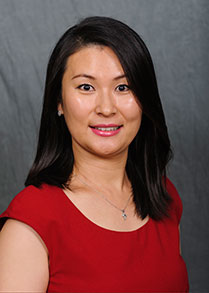Shinae L. Choi Presents on Older Adults and Estate Planning for Aging and Equity Series
by Adam Felts
The latest installment of the MIT AgeLab’s Aging and Equity series featured a presentation on how people’s relationship status – and especially transitions in relationships in older age – might influence their motivations to engage in estate planning. Webinar attendees included an international audience across industries and academia.
Dr. Shinae L. Choi, an Associate Professor in Consumer Sciences at the University of Alabama, presented findings and implications from a paper she published in the Journal of Family and Economic Issues on romantic relationship trajectories and estate planning behavior. Estate planning refers to the legal preparation individuals make to provide financial security to their survivors, especially the execution of wills and trusts.
Studies have shown that life events such as changes in health, economic status, or employment transitions often prompt individuals toward estate planning. But no studies have examined the impact of relationship status and transitions on older adults’ estate planning. Yet these sorts of transitions, including divorce, widowhood, and marriage/re-marriage or cohabitation, are becoming increasingly common among older people.
Dr. Choi proposed two frameworks of understanding how relationships and estate planning behavior might interact. Being continuously married might increase the likelihood of estate planning. Also, the dissolution of a union, whether through divorce of widowhood, might increase the likelihood of such planning.
To explore these hypotheses, Dr. Choi analyzed data from the 2010-2016 waves of the Health and Retirement study, tracking changes in relationship status among participants in the study in order to evaluate the role of such transitions in prompting estate planning.
Dr. Choi’s study also investigated the role that gender might play in estate planning behavior, as well as taking into account how wealth and health might account for differences across relationships statuses.
In her initial analysis, Dr. Choi found that people who became widowed were most likely to engage in estate planning. Being continuously married also was associated with higher rates of estate planning relative to other relationship statuses. Conversely, continuously never married and having separated or divorced were associated with the lowest rates of estate planning among respondents.
After adjusting for wealth, though, the gap in estate planning rates between married individuals—who tend to be financially better off—and the rest of the sample narrowed. Conversely, adjusting for wealth widened the gap for widowed individuals relative to the rest of the sample. A fully adjusted model accounting for all variables of interest exposed a key gender distinction: women who were widowed engaged in higher rates of estate planning, but not widowed men. Additionally, men were more likely to begin estate planning after a cohabitating union dissolved than women in the same situation.
Dr. Choi noted in her discussion of the results that never married and divorced older adults may represent key groups to target with educational materials about estate planning, as they show the lowest rates of such behavior. Financial planners, community organizations, geriatric social workers, and state policymakers can act as educators about estate planning as an important task in older age, and can maintain an awareness of which groups are more likely to need guidance on the topic.
For those interested in learning more about future installments of the Aging and Equity series, sign up here to receive updates via email.

